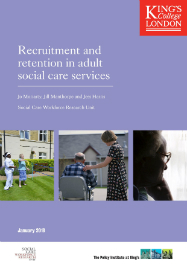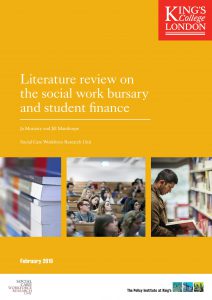 Caroline Green is a PhD student at King’s College London. (362 words)
Caroline Green is a PhD student at King’s College London. (362 words)
The Care Quality Commission (CQC), England’s care service regulator and quality inspector, is emphasising the centrality of human rights and equality when providing high quality care in care homes and other care services. Human rights are the rights we all have because we are human beings. They are legally enshrined in the Human Rights Act 1998 and the Equality Act 2010.
Andrea Sutcliffe, CQC’s Inspector-in-Chief, recently explained at CQC’s Human Rights and Equality Conference in February 2018 what role human rights play for CQC’s regulation and inspection of care homes. She said, ‘Human rights thread through all our key-lines of enquiry. It informs the judgement that we make when inspecting care services and is one way that the CQC can emphasise the importance of human rights, raise the profile and make sure that the people are being treated the way that they should.’ Continue reading



